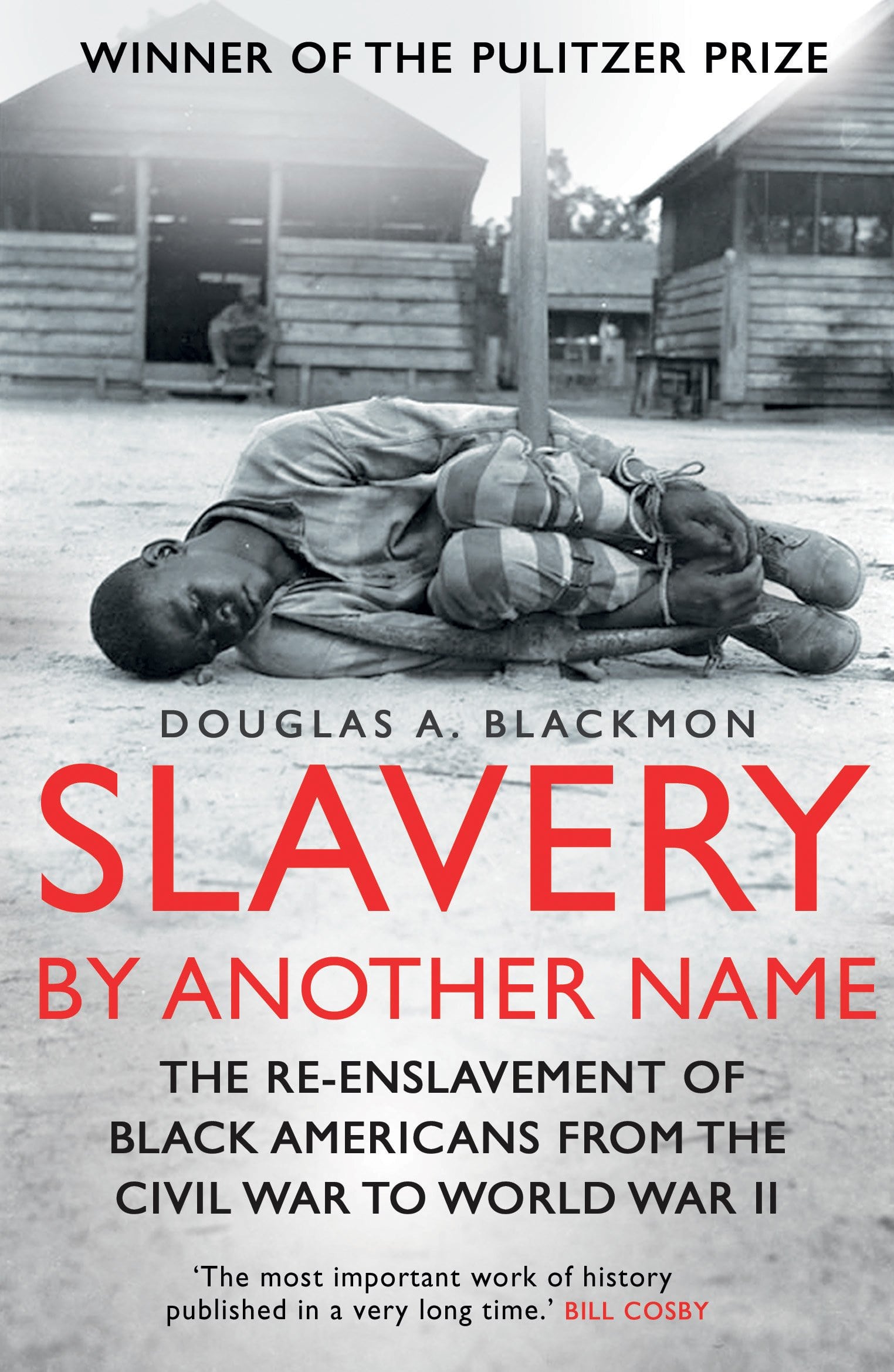Slavery by Another Name Summary
5 min read ⌚
 The Re-Enslavement of Black Americans from the Civil War to World War II
The Re-Enslavement of Black Americans from the Civil War to World War II
How many times have we heard about the exploitation and killings of Jews, and just bypassing the destiny of the African-Americans?
Although organized extermination was never the goal; slavery was seen as the quickest way of becoming rich.
Let’s see what Douglas has to say.
Who Should Read “Slavery by Another Name”? And Why?
If the name Nelson Mandela doesn’t ring any bells, then you are not of this Planet. Let’s assume that you’ve heard about his fight against the Apartheid and which granted him 27 Years in Prison.
This book bears a different name, but it’s written with an equally powerful purpose. In our humble opinion “Slavery by Another Name” doesn’t focus on anti-white rhetoric, but on social justice.
Anyone who thinks otherwise should indulge in reading it.
About Douglas A. Blackmon
 Douglas A. Blackmon is an American journalist and an award-winning author born on September 6th, 1964.
Douglas A. Blackmon is an American journalist and an award-winning author born on September 6th, 1964.
“Slavery by Another Name PDF Summary”
Blackmon digs deep in World History, and as a reporter decides to provoke the Wall Street Journal by asking a series of questions that make every person raise its eyebrows over the money-making methods.
He refers to in particular the idea of putting the British and American Imperial interests on the same wavelength as the German Policies during WW2. In other words, is the business/world community prepared to “bestow” the same level of disgust upon US Corporations as they did on the Swiss Banks and German Companies.
It’s no surprise that the history is written by the victorious, and this biased approach leaves people blinded by the ideas enforced upon them. The Holocaust was not only the cold-blooded execution of millions of Jews but also a well-planned robbery.
Anyway, Douglas turns his attention over to Corporate Policies that in the post-Civil-War period relied on Black Labor Force to achieve their goals and quotas. In general, this was Douglas’ main trigger, which inflamed the burning desire and passion for writing about this “abandoned” course of history.
Although Blackmon covers a lot more than just the life of a single person, the storyline is built and revolves around Green Cottenham – a young African-American man. What’s even more shocking is that the historical records of this individual are scarce, which puts additional weight on the problem.
According to the author, depriving Cottenham of his voice, rights, needs, and urges is what lies at the center of this trilogy. From today’s perspective, we know very little of Cottenham’s life. But that doesn’t lead to any sort of discouragement regarding the idea of digging up of what has remained of his “journey.”
From the information gathered, Cottenham’s day of birth is still up in the air. He was born in the late 19th century, to two former “incarcerated” slaves who shared the same fate in the South. In 1908, the Alabama State Penitentiary archive records show that Cottenham was arrested on charges of vagrancy.
Let’s clear up the confusion – this means: A dog running around without a master. However horrifying this sounds, this destiny was shared among many African Americans who were robbed of their freedom for the same reasons.
The State of Alabama sent a notice to the Penitentiary Facilities to “rent” African Americans that are detained in prisons on unclear charges. They were needed in coal mines to work for U.S. Steel Corporation, where many of them had their final breath.
Cottenham died while being worked to death.
As you may already have guessed it, this new form of captivity is what Blackmon calls “Industrial Slavery.” It’s within the context of robbing someone of his will and way of life. The cotton fields were replaced by factories, where many people met their end.
Although, The Thirteenth Amendment released all slaves from the lashes of their masters; many Southerners found new ways to restrict the political, social and economic freedom of African-Americans. The South known for its racial rhetoric and through the governmental bodies decided to deviate from the laws enforced about abolishing slavery, and invented terms to keep African-Americans obedient.
Jail acted as the primary weapon for labeling these figures as crime-oriented personalities in need of social education.
Exploitation even after The Thirteenth Amendment happened on a colossal scale, as Blacks were being detained for no good reason. Worked and sometimes starved to exhaustion on plantations, factories, coal mines, and lumber camps.
The evidence of this unethical and inhumane behavior can be found anywhere. The former Governor of Georgia who accumulated great wealth through his “convict and socializing program,” is just one of them.
Eugene Reese was among the few who endeavored in putting the responsible parties behind bars, who orchestrated this whole process. Under federal laws, he had the right to do so, but his efforts bore very few fruits because such policies and rhetorics were not “popular” at the time.
Excluding the Blacks from the social life, was not something seen as an injustice, especially in the South, so the prosecution was left empty-handed.
The slave tendencies put a strain on the relations between various communities within the country, and at the height of WW2, the country required unity. So, the racial issues slightly loosened at the time. Military action was crucial, and mobilization was underway.
Key Lessons from “Slavery by Another Name”
1. We need sincerity
2. You reap what you sow
3. New way, new life
We need sincerity
Blackmon doesn’t feel that a royal apology, nor pardon would do the job.
He believes that it’s vital to acknowledge the fact that the Blacks were demonized and used for personal agendas.
This is the only way to put all the differences aside and create a society in which every life counts.
You reap what you sow
If the world continues to perceive the world through the lens of judgment, we will reap sorrow and conflicts.
Building a better place requires a higher awareness that no longer divides people based on their status, political background, nationality, religion, skin color, etc.
New way, new life
Have we learned something? Are we walking down the same road or take different ones? All things considered, this compelling book should incite an inner change.
Go with the flow, and understand life as a basic human right to live/go/do/think as you please.
Like this summary? We’d Like to invite you to download our free 12 min app, for more amazing summaries and audiobooks.
“Slavery by Another Name Quotes”
the account of how a form of American slavery persisted into the twentieth century, embraced by the U.S. economic system and abided at all levels of government, offered a concrete answer to that fear for the first time. Share on X How had so large a population of Americans disappeared into largely unrecorded oblivion of poverty and obscurity? Share on X Compelled to help arm the troops fighting to preserve his enslavement. Share on X In the eyes of the vast majority of white Americans, the refusal of the southern states to fully free or enfranchize former slaves and their descendants was not an issue worthy of any further disruption to the civil stability of the… Share on XOur Critical Review
As much as we loved reading “Long Walk to Freedom,” we share a slightly higher affection for this one. To amplify our answer – this is something no one has ever talked about.
We all know about the slavery, but the idea of unveiling other subtler forms appeared just in time.
We give our thumbs up!
Emir is the Head of Marketing at 12min. In his spare time, he loves to meditate and play soccer.


 The Re-Enslavement of Black Americans from the Civil War to World War II
The Re-Enslavement of Black Americans from the Civil War to World War II




